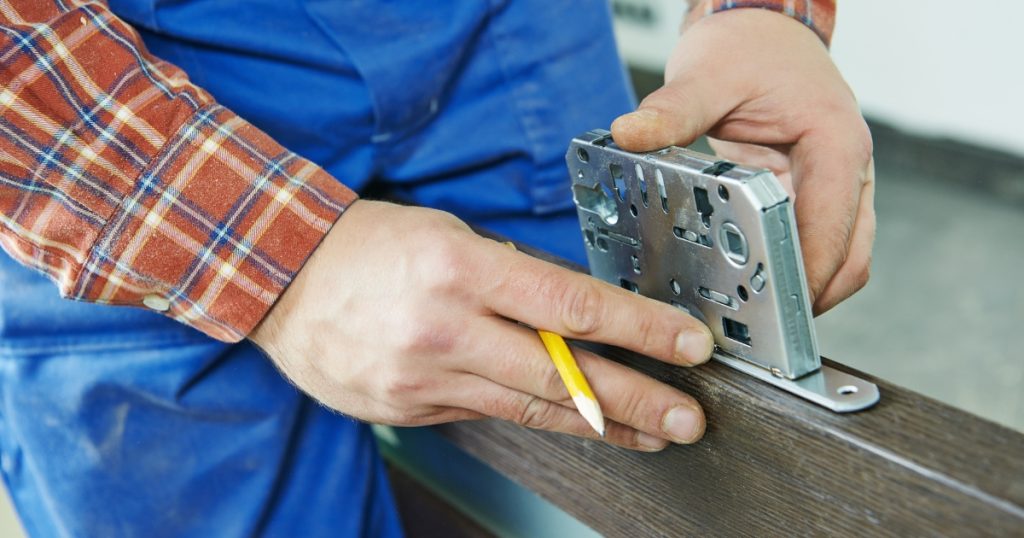Security is a top priority for most homeowners, and ensuring the safety of your home and family requires regular maintenance and updating of security measures. One of the most critical aspects of home security is the state of your door locks.
A damaged, outdated, or compromised lock can leave your property vulnerable to intruders. In this article, we will explore the various situations where you may need to replace your locks, how to identify the warning signs, and the best practices for lock replacement.
When to Replace Your Locks
There are several reasons you may need to replace your locks. In this section, we will discuss the most common reasons for lock replacement, helping you make an informed decision about when it’s time to change your locks.
- Wear and Tear
Just like any other mechanical device, door locks are subject to wear and tear over time. Regular use can lead to a worn-down lock mechanism, making it more challenging to lock and unlock your door. The following are signs of wear and tear that may indicate it’s time to replace your locks:
- Difficulty turning the key
- Loose or wobbly components
- Rust or corrosion
- Visible damage or deformities
- Lost or Stolen Keys
Losing your keys or having them stolen can be a significant security risk. In such cases, it’s crucial to replace your locks immediately to prevent unauthorized access to your home. Remember, it’s better to be safe than sorry.
- Moving into a New Home
When you move into a new home, it’s always a good idea to replace the locks. Even if the previous owners handed over all the keys, you can never be sure who else might have a copy. Replacing your locks is an essential step in ensuring the security of your new home.
- Break-ins or Attempted Break-ins
In the unfortunate event of a break-in or attempted break-in, your locks may have been damaged or compromised. Even if the intruder was unsuccessful, the attempt may have left your locks weakened or tampered with. Replacing your locks is crucial to restoring the security of your home.
- Outdated Locks
Lock technology has evolved significantly over the years. If your locks are several years old, they may no longer provide the level of security required to protect your home effectively. Upgrading to newer, more secure locks can give you peace of mind and better protect your home from potential intruders.
Identifying Warning Signs
It’s essential to recognize the warning signs that indicate your locks may need replacing. In this section, we will discuss the common warning signs and how to spot them.
- Difficulty Locking and Unlocking
One of the most obvious signs that your lock may need replacing is difficulty locking or unlocking the door. This could be due to a worn-down or damaged lock mechanism or a misaligned door. If you’re struggling to lock or unlock your door, it’s time to consider replacing your locks.
- Key Getting Stuck
If your key frequently gets stuck in the lock or requires jiggling to turn, this is another warning sign that your lock may be worn or damaged. In some cases, a professional locksmith may be able to repair the issue, but it’s often best to replace the lock entirely to ensure optimal security.
- Visible Damage
Visible damage to your lock, such as rust, corrosion, or deformities, is a clear indication that your lock may no longer be functioning correctly. In these cases, it’s crucial to replace your lock as soon as possible.
Best Practices for Lock Replacement
Once you’ve identified the need to replace your locks, it’s essential to follow best practices for lock replacement. This section will discuss the steps you should take to ensure your new locks provide the security you need.
Consult a Professional Locksmith
While it may be tempting to attempt lock replacement as a DIY project, it’s generally best to consult a professional locksmith. A skilled local locksmith can assess your current locks, recommend suitable replacements, and ensure proper installation for optimal security.
Choose High-Quality Locks
Not all locks are created equal. When replacing your locks, it’s crucial to invest in high-quality, durable locks that provide the best possible security. Look for locks with the British Standard Kitemark or those that meet the requirements of Sold Secure or Secured by Design. These certifications indicate that the lock has undergone rigorous testing and is deemed secure by industry experts.
Consider Smart Locks
Smart locks offer several advantages over traditional locks, including keyless entry, remote access, and the ability to monitor your home’s security from your smartphone. When replacing your locks, consider upgrading to a smart lock system for added convenience and security.
Rekeying vs. Replacing
In some cases, you may not need to replace your locks entirely – rekeying may be a more cost-effective solution. Rekeying involves changing the internal mechanism of the lock so that it works with a new key.
This can be a suitable option if your locks are still in good condition but you need to restrict access to your home (e.g., after losing a key or moving into a new property). Consult a professional 24/7 locksmith to determine if rekeying is an appropriate option for your situation.
Don’t Neglect Window Locks
While door locks are crucial for home security, it’s essential not to overlook your window locks. Intruders may target windows if they cannot access your home through the door. When replacing your locks, ensure your window locks are also up to date and functioning correctly.
Conclusion
Knowing when to replace your locks is essential for maintaining the security of your home and protecting your loved ones.
By being vigilant for warning signs, such as difficulty locking or unlocking doors, stuck keys, or visible damage, you can take timely action to replace compromised locks.
Always consult a professional locksmith and invest in high-quality locks to ensure the best possible security for your home.
Remember, your home’s security is only as strong as its weakest link – don’t let outdated or damaged locks put your property and family at risk.

